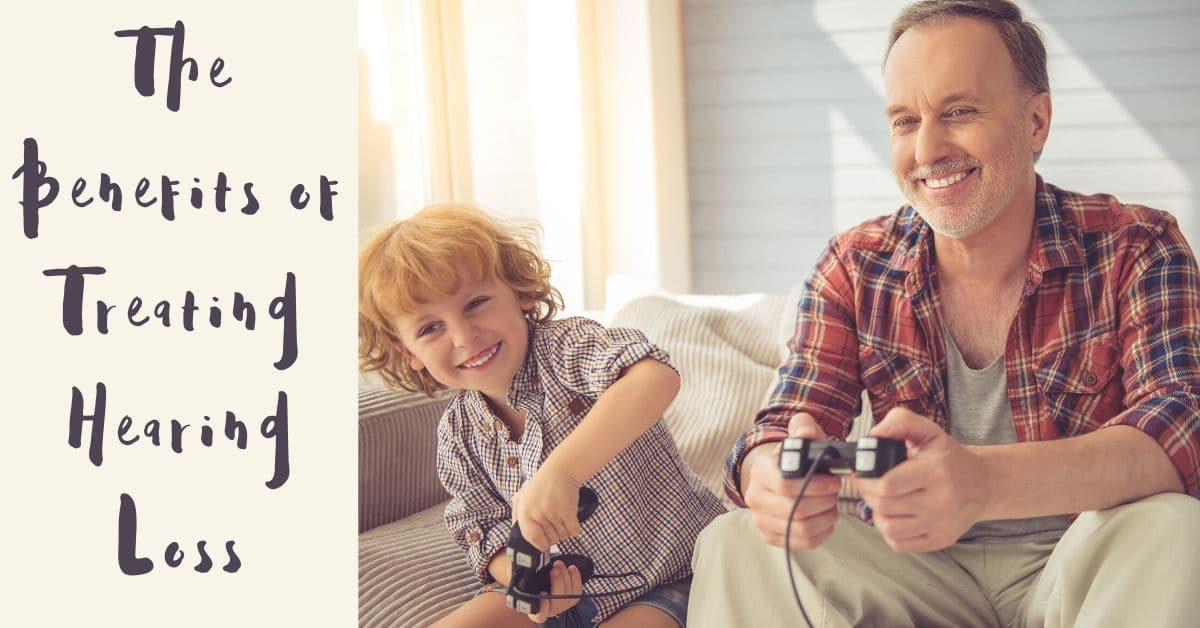
It is common for some degree of hearing loss to occur as you age. In fact, presbycusis is one of the most common causes of hearing loss. Therefore, you must tend to your hearing health just as you tend to your overall health in your senior years.
Millions of Americans are living with some degree of hearing loss, approximately 48 million according to an estimate from the Hearing Loss Association of America. It is the third most common chronic physical condition in the U.S., more prevalent than diabetes or cancer, according to the Centers for Disease Control and Prevention (CDC).
Taking care of your hearing health is a process that you do not have to go through alone. Loved ones and your hearing health care professional can help you along the way when you are in need. Reaching out for support as you re-learn the functions of hearing, and the accompanying equipment, is a great way to set yourself up for success.
After taking a hearing test, your hearing health professional will discuss your results with you and schedule a hearing aid fitting. Many people may not realize that these are separate appointments that need their own time because lots of information is covered in each. The hearing aid fitting appointment may happen over multiple visits to ensure that the hearing aid is comfortable and suited to your needs.
The Fitting Appointment
During your fitting appointment with your hearing health professional, they will fit you with a hearing aid based on your specific needs. Your hearing health professional will ask you questions about your lifestyle before selecting a hearing aid that might best suit you and you should answer with as much detail as possible.
Some questions may include: Do you live a relatively quiet lifestyle or in a home with a big family? Some people have trouble hearing high pitched sounds of women and children, so this information would be essential to ensuring your hearing aid hears those tones and pitches. If you are employed, do you work in a cubicle or on a construction site? The CDC estimates that about 25 percent of hearing loss in America is job related, so your hearing health professional needs this information.
Your hearing health professional will ensure that the physical fit of the hearing aid is comfortable around or in your ear and that the device is programmed correctly. They will provide information on how to use and care for your new hearing aid, too. This is an opportunity where having a friend or family member with you could benefit you; they could be a second pair of ears to receive information and sort through it later with you.
Take the following steps to ensure a successful hearing aid fitting:
- Clear your calendar
Your appointment is much more than picking up your new hearing aids. It is a course in operation and care that takes time. It is best not to rush out of your hearing health professional’s office and miss out on any vital information so it is best to clear your schedule for the day of your fitting.
- Bring a friend
Ask a friend, relative, or someone in your support system to join you at your fitting appointment. The journey to better hearing health has been a long one and it will be nice to hear a familiar voice as you begin to hear more normally again. Your companion can also help to remember some of the instruction and information your hearing health professional gives you.
- Take Notes
Taking notes should certainly happen during the appointment, but this step can also begin beforehand. When questions come up about the hearing aid, the impact on your lifestyle, or care and maintenance, write them down so you can have the hearing health professional address them. You should also take notes during conversation and encourage your companion to do the same. Afterward, the two of you can share and compare notes for anything that may have been missed.
Absolute Hearing Care Centers
It can be difficult admitting that you need help treating disabling hearing loss. The stigma associated with hearing loss and hearing aids—ageism, self-perception, vanity, to name a few—can be a huge barrier to seeking treatment. Once you are able to meet or overcome those barriers, however, you will notice an abundance of help and resources available to you.
A first, important step is scheduling a hearing exam with a hearing health professional at Absolute Hearing Care Centers for a thorough diagnosis. Our team will discuss your results with you and then schedule a hearing aid fitting. Being prepared before and knowing what to expect during the fitting appointment will serve you well in familiarizing yourself with a new hearing aid.
Your path to better hearing health is a continuous journey that you need not navigate alone. Take advantage of the wealth of information your hearing health care professional can provide and stay informed. The groundwork may be laid during the fitting, but just as your lifestyle may change over time, the function and fit of you hearing aid can also change to serve your hearing health needs.




